- Home
- George R. R. Martin
Wild Cards VIII: One-Eyed Jacks Page 5
Wild Cards VIII: One-Eyed Jacks Read online
Page 5
Nothing for it, she knew, but to wait for another one. There was some blood on her knee, small firebursts of pain as she gingerly put her weight on it—and a nasty tear in the already ruined panty hose—but as she lifted up to her full height, she found it would bear her weight, no problem. Thank heaven for small favors, she thought. And then she breathed the smell of a marshy shore at low tide.
Oh shit, she thought, reacting simultaneously, faster than she ever dreamed possible, starting a twisting dive that would buy her some distance and allow her to bring her gun to bear. The move was just enough to save her—the blow that should have knocked her senseless clipping the back of her skull, showering her thoughts with stars—but there was no grace to her landing, an awkward belly flop that left her sprawled on the slimy concrete. She rolled desperately sideways, managing to get off a shot—her bullet spyanging uselessly off the ceiling—before a massive tentacle slapped the gun from her hand, the force of the blow tumbling her off the platform and onto the track bed. As she landed, she heard a sharp clatter, her gun falling to the tracks a level below, where another line ran parallel to this one.
She pushed herself out of the muck, her mouth full of the oceanic garbage-dump stench of the ace, so thick each breath made her gag; she knew it was her he wanted, had no illusions as to what would happen then. Even if she survived, that prospect was too horrible to contemplate.
So she ran.
The track bed seemed to angle upward as it left the station, and not far away she thought she saw a glow that perhaps meant open air. Sure enough, the tunnel rose out of the ground. The rain hadn’t let up, it was like running into the ultimate bathroom shower, the drops striking with such force they actually hurt. There was a wind here as well, blowing off the harbor, trying to shove her back underground. She staggered to the wall that flanked the tracks, tried to clamber over, couldn’t get a decent grip, yelped as her scrabbling hand snagged one of the strands of barbed wire hung along the top.
A rumble—felt as much as heard—heralded the passage of a Manhattan-bound F on the opposite track. Her brain was totally fogged, as though she’d been drugged; the reality of the train didn’t even register until it was too late for her to try to get the driver’s attention. And though she waved, called, none of the passengers appeared to notice. But following the tracks as they curved along the viaduct, she dimly made out the lights of a station at its crest, the next one on the line. Not so far away, she thought, I can make it, easy. Tossed her remaining shoe, ignored the pain as stones and worse poked at her feet.
Did all right at first, no worse than a morning jog up a mountain road, wasted no effort looking over her shoulder—the ace was either there or he wasn’t—better to assume the one than confirm the other. Rain tasted surprisingly sweet, for all its elemental fury, but that was the only sensation it sparked in her. She couldn’t feel it strike her skin, it was as though she’d been wrapped in some impermeable membrane, mind suddenly disassociated from her body. A bellowed cry—rage and futile protest, the animal in her snared by an unbreakable trap—erupted from her gut as that awful, remembered tickling danced against the underside of her skin. The flesh she could see wasn’t tanned anymore, the silver’d turned gray and oily, the arms (Illusion, she gabbled silently, dear Christ let this be my imagination) no longer quite as firm as once they’d been, seeming to flex and curve with a horrible, boneless grace. Her teeth didn’t fit and every part of her body felt ready to explode, skin stretched, shrink-wrapped impossibly, unbearably taut over bones that had turned to razor blades. Each step became an effort. Her legs hadn’t changed—except to acquire the same opalescent sheen as her arms—but they felt petrified. The joints wouldn’t bend—at knees or hips—she had to swing her entire body to shift them. She was near the crest of the viaduct, better than six stories up, no buildings close enough to risk a jump—even if she was capable of trying. The station was her only hope.
He caught her.
With the casual roughness of someone supremely confident of his strength, he wrapped a tentacle around her neck and yanked her flat; the impact shocked her breathless, she couldn’t move. He dropped heavily on her, main tentacles pinning each arm, while the secondary nests scrabbled at her blouse, popping the buttons, shredding it and the bra underneath. There was a broad concrete median separating the tracks, that’s where they’d fallen—easily spotted from the station on any sort of decent day, impossible in this gale. His penis lay like a bar across her belly as he shifted position, releasing one arm so he could tear her skirt and panties out of the way. She hit him, hard as she could; all she did now was hurt her hand. She tried for his eyes but the ace was ready for her, caught her arm, forced it back down.
New voice, making itself heard inside her head, through the shrieking berserker rage, calling her name.
“Tachyon,” she screamed, without knowing if she used her voice or mind or both.
Where are you? Were the words really his, or was this some psychotic trick her own mind was playing, giving her one last imaginary reed to hold on to?
There’s no time, was her reply. She was boiling inside, all the elements of her self seething, bubbling, losing cohesion. He had her, the transformation was approaching critical mass; she knew that in a matter of minutes, it would be done.
Help me, then, Tachyon told her. Open your mind, Cody, if I’m to do anything, I have to see him!
Come, she thought. And nothing happened. No sense of trespass, or of another presence. None of the imagery she’d read of in a thousand books and comics.
But there was a glaze to the ace’s eyes, and his body had gone rigid.
He’s frozen, Cody, Tachyon said, but I’m not sure how long I can hold him.
She wriggled arms free of his tentacles, tucked her legs up as best she could, refusing this last time any of her body’s protests as she forced it to move, then heaved as hard as she could. He shifted, started to stir in response—she didn’t need Tachyon’s frantic mental cry to know what that meant—bellowed like a weight lifter for a final effort, arms starting the ace on his way, legs doing the bulk of the work, shunting him back and sideways, he rolled sort of like a Humpty-Dumpty toy, so much weight so low on his body that he couldn’t get a decent balance until he came to rest. The scene was splashed by blinding light—a train pulling out of the station, headlamps illuminating the scene—and then there was a brighter flash, sparks and flame and a shriek of agony as a flailing limb slapped the third rail. The ace bounced and spasmed and roared as electricity ripped through him—and for a moment Cody thought he might pull free and somehow escape. But she’d reckoned without the train. The engineer applied his brakes the moment he saw them, but he had too much momentum on the slope and the rain had made the rails slick, and even as it shrieked to a stop, the lead bogies crushed the creature to bloody pulp.
As the train crew scrambled to her aid, she heard the electronic whoop of police sirens, converging faintly from all sides—before long, the viaduct was thick with blue rain slickers, the distant platform spotlit by TV minicam news crews. She hadn’t moved—didn’t have the strength—she just lay in a half sprawl, on her side, staring at the smoking remains, ignoring the shocked, scandalized, fascinated stares of the passengers.
Now, there was a presence in her mind—Tachyon’s thoughts with hers even as he pounded up the flights of stairs from Smith Street far below. He drew a psychic setting from the places she loved best, and was kind enough not to react when that turned out to be Firebase Shiloh, in Vietnam’s central highlands. Her physical appearance was the same here as in objective reality—no idealization to her mental image of herself—but there was a relaxed, confident strength to her that gave the feeling she was a rock, to which anyone could anchor and be protected. Tachyon allowed himself to be blended into the psiscape—muttering with characteristic dismay at the ultimate lack of style embodied in military combat fatigues (the color scheme was utterly awful)—and then, slowly, gently, began to integrate Cody’s mental imagery
back into the real world outside. So that by the time he slipped free of Cody’s awareness, she was over the shock of the moment, centered once more in mind, if not body—which, pushed far beyond its brink, promptly collapsed.
She awoke in a top-floor single at Blythe—she figured that out from the view—and at first luxuriated in the simple ecstasy of being human. She flexed her fingers, watching the glow of the morning sun on her arms, and marveled that the only sheen was due to honest, human sweat.
“Sleep well?” Tachyon asked from a chair against the wall, stretching with a small groan to ease the stiffness in his back.
She answered with a smile and marveled a little at how relaxed it felt. Didn’t think she had that in her anymore, shocking in retrospect to discover how deeply the tension of the past few months had left its mark. How delicious she felt to be free of it.
She started to form a question, but he answered before the thoughts had even coalesced.
“Yes, I’ve been here all night.”
She wondered if she should be angry—obviously the mind link had left its own mark, a duality of being that might well make both their lives miserable—decided it was a pointless exercise. What was, was; what mattered was dealing with it and moving on.
“Admirable philosophy,” Tachyon agreed, laughing at her sharp sigh of asperity. “Actually, though, things aren’t as bad as all that. I’ve been monitoring you while you slept.”
She couldn’t help a giggle at the thought of him walking sentry, marching back and forth across the gateway to her consciousness. The image was strong enough to bring a chuckle to his lips as well.
“Making sure,” he finished, “there was no residue from your encounter with Sludge.”
“How’d you learn his name?”
“Any psychic contact involves entering into a degree of rapport. I can’t help learning some things. In Sludge’s case”—he shrugged, mixing dismissal and disgust—“the thoughts were relatively simple, desire-oriented. He was not an intellect, by any stretch of the imagination. Cunning more than intelligence. ‘Sludge’ was the name he chose for himself.”
“He was an ace?”
“Autopsy confirmed that—analysis of his blood—just as it revealed the body in our morgue to be a nat. As near as we’ve been able to determine, he’s been roaming the subways and other tunnels beneath the city for quite some time, preying mostly on runaways and the homeless, the underclass who’d never be missed. And none of us realized—”
“How many?”
“Victims?” He sniffed, gazing out the window—but she knew he was looking back through the ace’s memories. “Impossible to know. Sludge had very little cognitive capacity. Quite a few, I suspect.”
“He killed them all.”
“He ate them.”
They were silent a long while. Faintly, Cody heard a page over the hospital’s PA system. Gritting her teeth against the possibility of pain or weakness, she levered herself to her feet. There was an IV running in her left arm; she pinched off the junction and popped the tube, then hobbled the half-dozen small and gingerly steps to Tachyon. He seemed so small before her, yet the image she remembered from her mind was as strong and resilient as she imagined herself to be. She pressed her body against his back, wrapping her arms around his shoulders, resisting the temptation to set her chin atop his head. He reached up to take her wrists in his good hand and rest his chin on them. She didn’t need to see his eyes to recognize the sober, haunted expression in them. She’d seen the same in hers, too often, when she’d lost a patient that she believed could have been saved.
“A new twist,” he said, allowing a faint edge of bitterness to the words, “on the old expression ‘you always kill the one you love.’”
“Not to mention,” Cody couldn’t help responding, “‘you are what you eat.’”
He laughed, a spontaneously explosive snort that caught them both by surprise, then turned somber again: “Why did you go haring off like that?”
“Impetuous broad, that’s me. I gather you got my message.”
“Brad Finn came over to the precinct in person. I just missed you, evidently. Captain Ellis had squad cars cruising Jokertown looking for you. We heard the report of a shot fired at Carroll Street …
“… and then I heard your outcry.”
“Thanks for listening.”
He turned to face her. “You don’t understand. In a city this size, a telepath has to maintain fairly strong shields simply to keep from being overwhelmed by the sheer volume of psychic ‘noise.’ I have to be attuned to a person to ‘hear’ them; that almost never happens after a single, casual encounter.”
“Perhaps it wasn’t so casual, then.”
“Apparently not.”
“Tachyon, whatever the reason, I’m grateful for it.”
“In time—fairly short order, actually—we won’t resonate on quite so common a frequency. I’ll still be unusually sensitive to you, but it will take a conscious effort to scan your thoughts.”
“Over what range?”
“To be honest, I’ve no idea. This has never happened with anyone, in quite the same way. I’m sorry.”
“For what, saving my life?”
“I created that monster. Those poor women Sludge slaughtered, their deaths are on my conscience.”
“Welcome to the club.”
“You don’t understand.”
“I’m a surgeon. I spent three years as a combat cutter. I do understand. So what?”
“It’s my responsibility.”
“Fine.” She deliberately took him by his maimed right arm. “Be responsible. You can’t change the past, any more than I can resurrect the patients I’ve lost—or the people I’ve actually killed. Yeah”—she nodded—“there’s blood on my hands, too, it was a war, it came with the territory. And if there’s a hereafter, maybe I’ll get to deal with it then. Who cares? It’s done. But at least I’ve come to terms with it. Taken my terror out of the closet, where I’ve been denying it even existed, and hung it out in the open with the other nightmares, where I can get a good look at it, see it for what it is—and me for what I am. Doesn’t mean that doesn’t hurt, and won’t for a long time yet to come. But it’s there. I can deal with it. Try that yourself, might be in for a surprise.”
“You’re needed, Cody,” he said simply.
“I’m a doctor, Tachyon, not a crutch.”
He half raised his stump in its sling, then let it fall, his shoulders slump. “So you’ll be going, then,” he said.
“Gotta find someone to look after the ranch—couple o’ guys I know in Colorado, vets, could do a fair job, give ’em a call before I fly out—spring the news on Chris, pack up the place, find a decent rack here in town.” He looked at her in amazement, not altogether sure he was hearing right. “Assuming, of course”—the deliberate seriousness in her voice belied by the lopsided smile at the edge of her mouth—“we can agree on a salary.”
Tachyon had the decency to cough. “I’m, ah, sure we can work something out,” he hazarded.
“Let’s not presume too much, shall we?” Cody said, giving the smile full rein.
She held out her hand.
And Tachyon, his own smile a match for hers, took it.
Nobody Knows Me Like My Baby
by Walton Simons
THE LEFT SIDE OF Tachyon’s desk was littered with charts and paper. The right was almost bare. Jerry was trying hard not to look at the prosthetic hand, but his perverse side demanded a glance or two. Tachyon hadn’t caught him at it. There was a visible hardness to the plastic that was out of place on the alien, and the color was a flesh tone or two off.
“How is your adjustment coming, Jeremiah?” Tachyon looked at Jerry and then glanced out his office window into Jokertown.
“Fine. I mean, there’s rough spots here and there.” Jerry smiled. Tachyon looked even more tired than usual. His already pale skin had less color and his red hair was dull and poorly kept, at least for Tachyon.
“You’re sure. You seem a bit … withdrawn.”
Jerry always felt as transparent as Chrysalis’s skin when talking to Tachyon. But Chrysalis was dead. So was Jerry’s pretense that life was wonderful. “Well, I just, you know, sometimes I think I don’t relate well to women. They make me feel inadequate. Worse than that, they make me feel needy. I’d give my—” Jerry caught himself in time. “I just want somebody to see me the way I am and love me for it.”
Tachyon nodded slowly. “Only what we all want, Jeremiah. I suspect you are, in fact, very well loved. Perhaps you’re simply unaware of it. Try to temper your patience with the knowledge that love often comes when you’ve tired of looking for it. As for alienation from the opposite sex, we all deal with that, too. I seem to have specialized in it myself. Of course, being from Takis, I have my own built-in excuse.”
It wasn’t what Jerry wanted to hear. He was tired of trying to be patient. But he hadn’t expected Tachyon to turn over his little black book, either. Not that any woman could keep him from thinking about Veronica. “Sounds like good advice, I guess. Easier to say than do, though.”
Sirens passed by outside. Jerry glimpsed red light flashing on the side of a building the next block over. Tachyon looked, too. Jerry had never seen the blinds closed on that window, even though the only things visible were beat-up buildings, garbage, the occasional car, and jokers. Jerry only came to Jokertown to visit the clinic once a month.
“Something else,” Jerry said, trying to regain Tachyon’s attention. “My power is coming back.”
Tachyon looked at him for a long moment. “It never went away, Jeremiah. You were traumatized so severely that you ceased to trust it. That trust must be coming back for your shape-changing ability to be manifesting itself again. If you’re pleased, then I’m pleased for you. The current political climate being what it is, you might do well to keep this to yourself. The public thinks your ace is gone. Maintaining that image is in your best interest, believe me.”

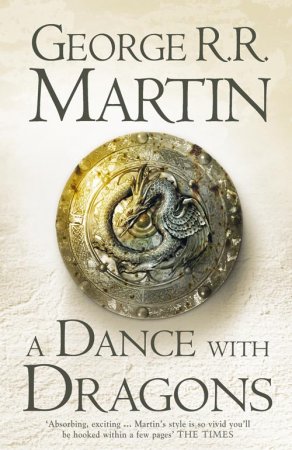 A Dance with Dragons
A Dance with Dragons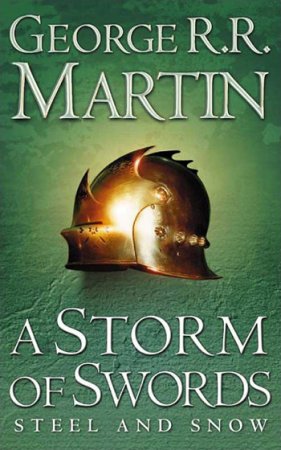 A Storm of Swords
A Storm of Swords A Feast for Crows
A Feast for Crows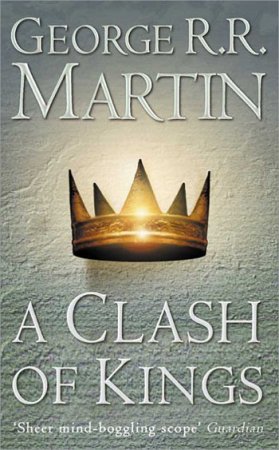 A Clash of Kings
A Clash of Kings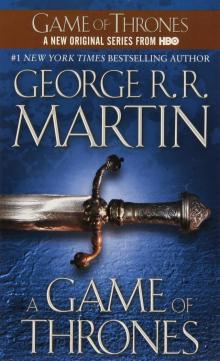 A Game of Thrones
A Game of Thrones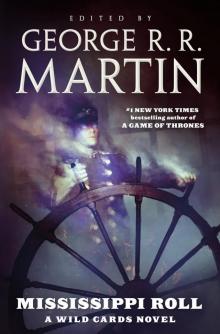 Mississippi Roll
Mississippi Roll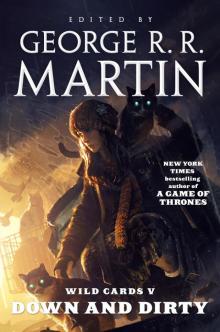 Wild Cards V: Down and Dirty
Wild Cards V: Down and Dirty Busted Flush
Busted Flush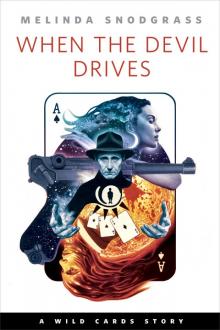 When the Devil Drives
When the Devil Drives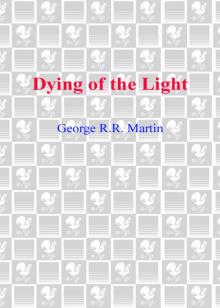 Dying of the Light
Dying of the Light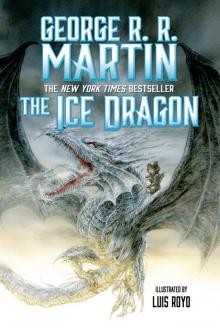 The Ice Dragon
The Ice Dragon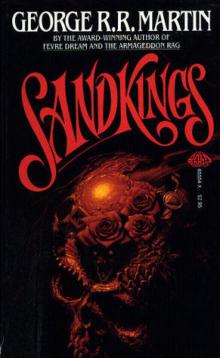 Sandkings
Sandkings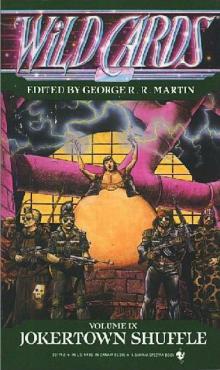 Jokertown Shuffle
Jokertown Shuffle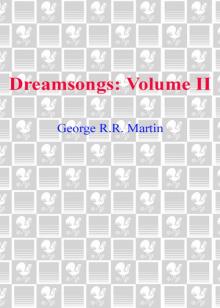 Dreamsongs. Volume II
Dreamsongs. Volume II Deuces Down
Deuces Down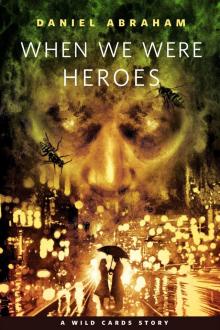 When We Were Heroes
When We Were Heroes Warriors
Warriors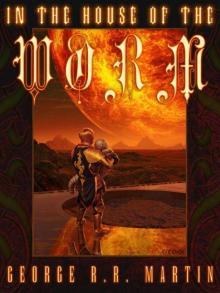 In the House of the Worm
In the House of the Worm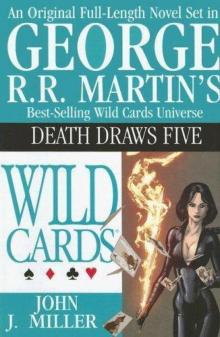 Death Draws Five
Death Draws Five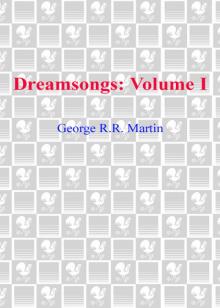 Dreamsongs. Volume I
Dreamsongs. Volume I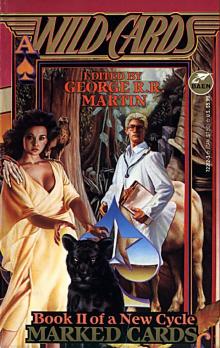 Marked Cards
Marked Cards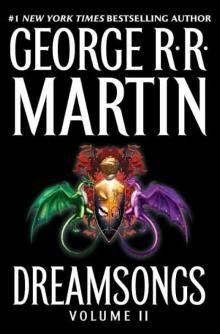 Dreamsongs
Dreamsongs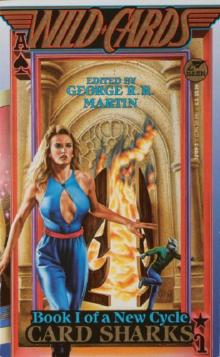 Card Sharks
Card Sharks Dangerous Women
Dangerous Women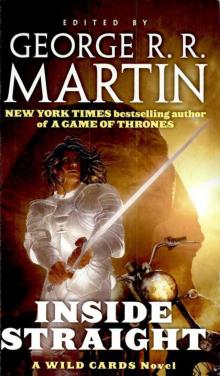 Inside Straight
Inside Straight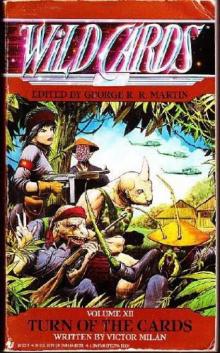 Turn of the Cards
Turn of the Cards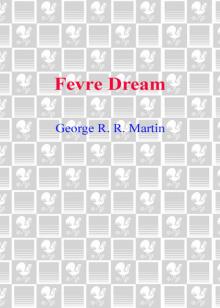 Fevre Dream
Fevre Dream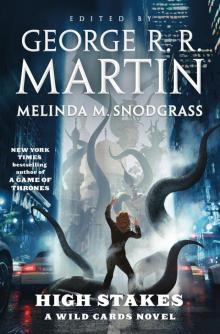 High Stakes: A Wild Cards Novel
High Stakes: A Wild Cards Novel Windhaven
Windhaven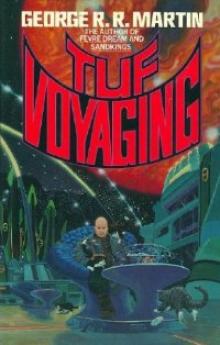 Tuf Voyaging
Tuf Voyaging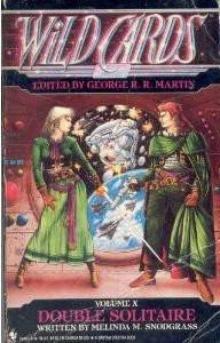 Double Solitaire
Double Solitaire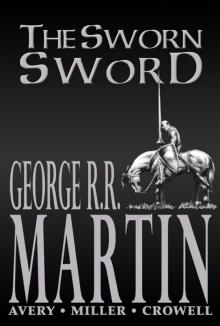 The Sworn Sword
The Sworn Sword Low Chicago
Low Chicago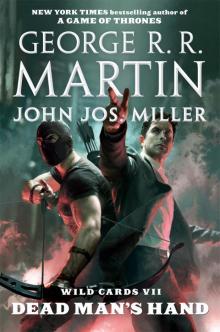 Dead Man's Hand
Dead Man's Hand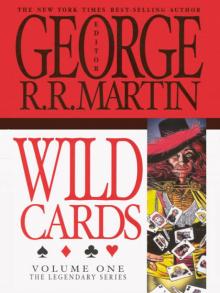 Wild Cards
Wild Cards Black Trump
Black Trump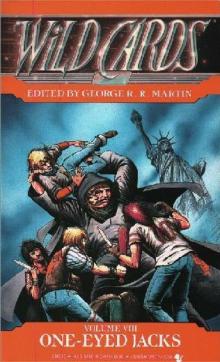 One Eyed Jacks
One Eyed Jacks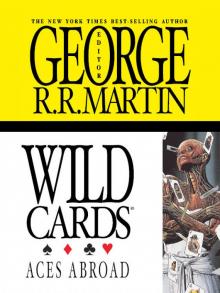 Wild Cards: Aces Abroad
Wild Cards: Aces Abroad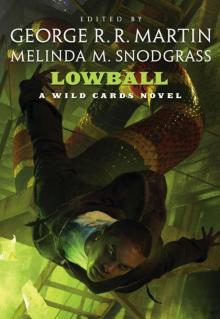 Lowball: A Wild Cards Novel
Lowball: A Wild Cards Novel Double Solitaire (2019 Edition)
Double Solitaire (2019 Edition) Dealer's Choice
Dealer's Choice Ace in the Hole
Ace in the Hole A Song for Lya: And Other Stories
A Song for Lya: And Other Stories Three Kings
Three Kings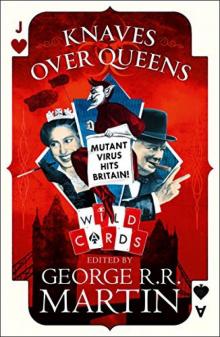 Knaves Over Queens
Knaves Over Queens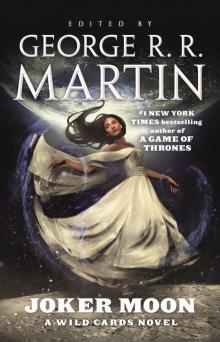 Joker Moon
Joker Moon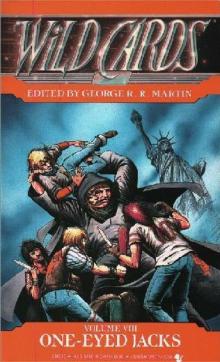 One Eyed Jacks wc-8
One Eyed Jacks wc-8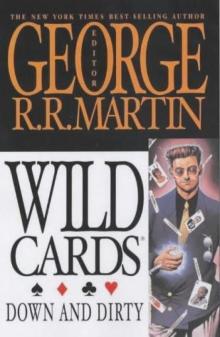 Down And Dirty wc-5
Down And Dirty wc-5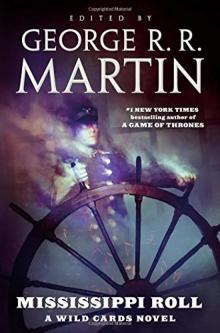 Mississippi Roll_A Wild Cards Novel
Mississippi Roll_A Wild Cards Novel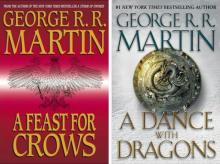 A Feast for Dragons
A Feast for Dragons The Sworn Sword ttodae-2
The Sworn Sword ttodae-2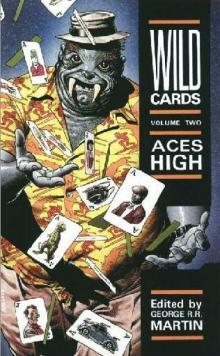 Aces High wc-2
Aces High wc-2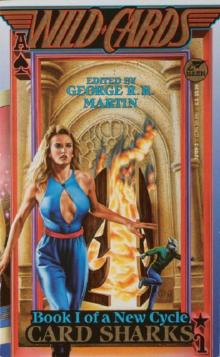 Wild Cards 13 : Card Sharks
Wild Cards 13 : Card Sharks Way of the Wizard
Way of the Wizard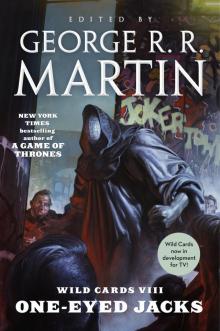 Wild Cards VIII: One-Eyed Jacks
Wild Cards VIII: One-Eyed Jacks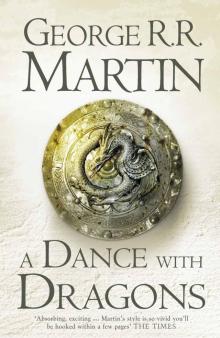 A Dance With Dragons: Book 5 of A Song of Ice and Fire (Song of Ice & Fire 5)
A Dance With Dragons: Book 5 of A Song of Ice and Fire (Song of Ice & Fire 5) The Princess and The Queen, Or, The Blacks and The Greens (a song of ice and fire)
The Princess and The Queen, Or, The Blacks and The Greens (a song of ice and fire)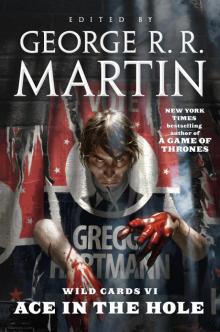 Wild Cards VI--Ace in the Hole
Wild Cards VI--Ace in the Hole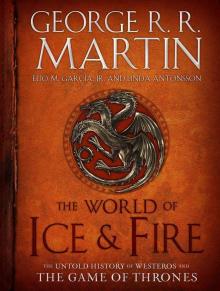 The World of Ice & Fire: The Untold History of Westeros and the Game of Thrones (A Song of Ice and Fire)
The World of Ice & Fire: The Untold History of Westeros and the Game of Thrones (A Song of Ice and Fire)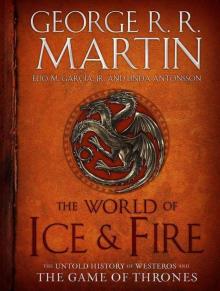 The World of Ice & Fire: The Untold History of Westeros and the Game of Thrones
The World of Ice & Fire: The Untold History of Westeros and the Game of Thrones Busted Flush wc-19
Busted Flush wc-19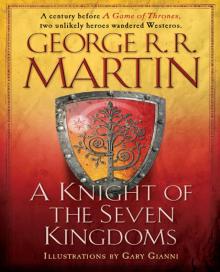 A Knight of the Seven Kingdoms
A Knight of the Seven Kingdoms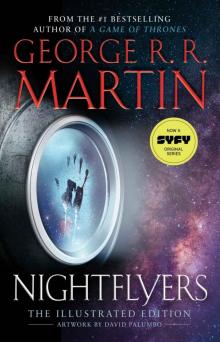 Nightflyers: The Illustrated Edition
Nightflyers: The Illustrated Edition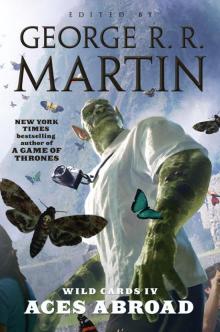 Wild Cards IV
Wild Cards IV Portraits of His Children
Portraits of His Children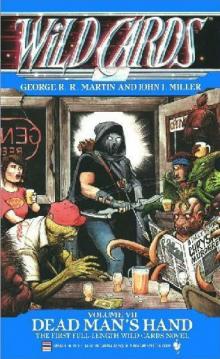 Dead Mans Hand wc-7
Dead Mans Hand wc-7 Jokers Wild wc-3
Jokers Wild wc-3 The Lonely Songs of Laren Dorr
The Lonely Songs of Laren Dorr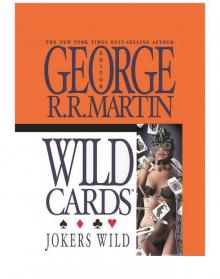 Wild Cards III: Jokers Wild
Wild Cards III: Jokers Wild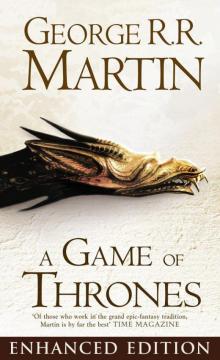 A Game of Thrones Enhanced Edition
A Game of Thrones Enhanced Edition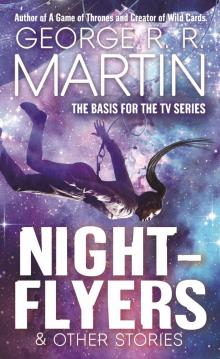 Nightflyers & Other Stories
Nightflyers & Other Stories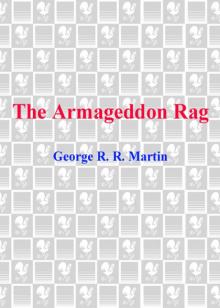 Armageddon Rag
Armageddon Rag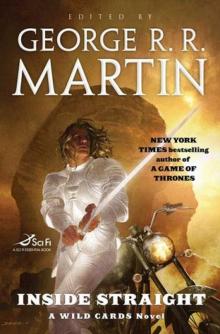 Wild Cards: Inside Straight
Wild Cards: Inside Straight A Song for Lya
A Song for Lya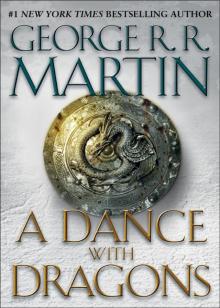 A Dance with Dragons: A Song of Ice and Fire: Book Five
A Dance with Dragons: A Song of Ice and Fire: Book Five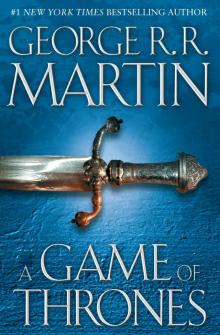 Song of Fire & Ice 01 - A Game of Thrones
Song of Fire & Ice 01 - A Game of Thrones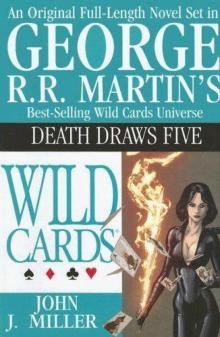 Death Draws Five wc-17
Death Draws Five wc-17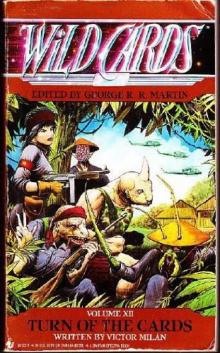 Turn of the Cards w-12
Turn of the Cards w-12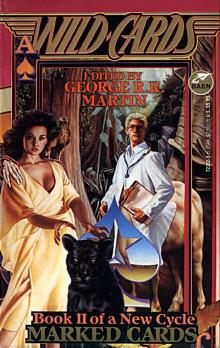 Wild Cards 14 - Marked Cards
Wild Cards 14 - Marked Cards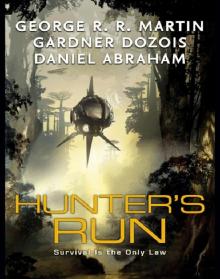 Hunter's Run
Hunter's Run The Glass Flower
The Glass Flower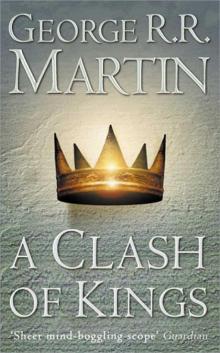 A Clash of Kings asoiaf-2
A Clash of Kings asoiaf-2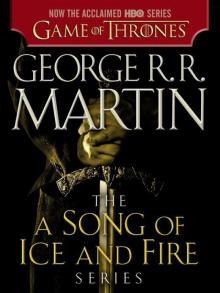 A Game of Thrones 5-Book Bundle: A Song of Ice and Fire Series: A Game of Thrones, A Clash of Kings, A Storm of Swords, A Feast for Crows, and A Dance with Dragons (Song of Ice & Fire)
A Game of Thrones 5-Book Bundle: A Song of Ice and Fire Series: A Game of Thrones, A Clash of Kings, A Storm of Swords, A Feast for Crows, and A Dance with Dragons (Song of Ice & Fire)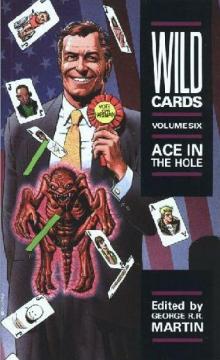 Ace In The Hole wc-6
Ace In The Hole wc-6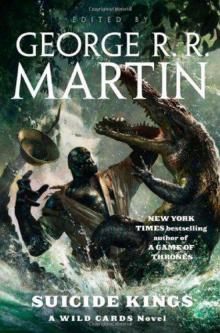 Suicide Kings wc-20
Suicide Kings wc-20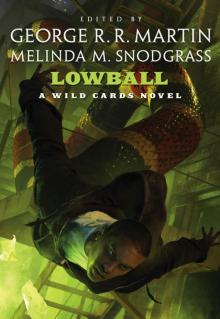 Lowball
Lowball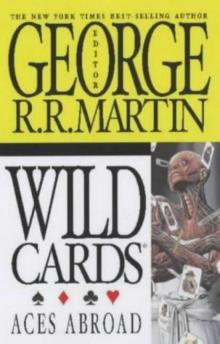 Aces Abroad wc-4
Aces Abroad wc-4 George R. R. Martin's a Game of Thrones 4-Book Bundle
George R. R. Martin's a Game of Thrones 4-Book Bundle A Feast for Crows asoiaf-4
A Feast for Crows asoiaf-4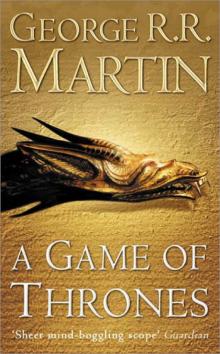 A Game of Thrones asoiaf-1
A Game of Thrones asoiaf-1 The Mystery Knight ttodae-3
The Mystery Knight ttodae-3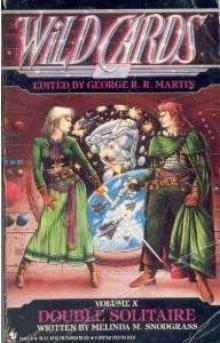 Double Solitaire w-10
Double Solitaire w-10 Wild Cards 15 - Black Trump
Wild Cards 15 - Black Trump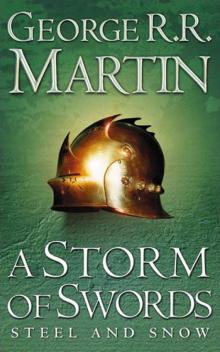 A Storm of Swords asoiaf-3
A Storm of Swords asoiaf-3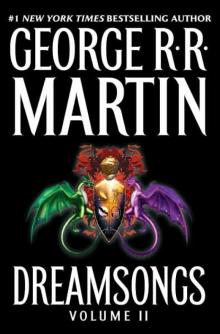 The Hedge Knight ttodae-1
The Hedge Knight ttodae-1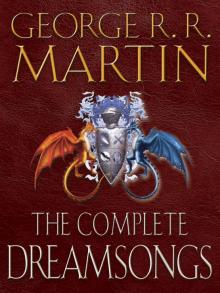 Dreamsongs 2-Book Bundle
Dreamsongs 2-Book Bundle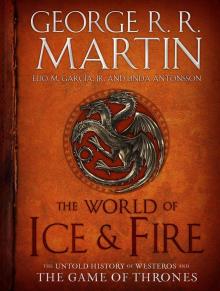 The World of Ice & Fire
The World of Ice & Fire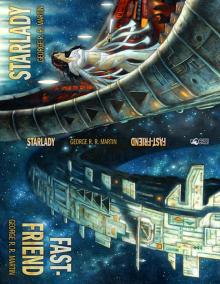 Starlady & Fast-Friend
Starlady & Fast-Friend Old Mars
Old Mars Fantasy For Good: A Charitable Anthology
Fantasy For Good: A Charitable Anthology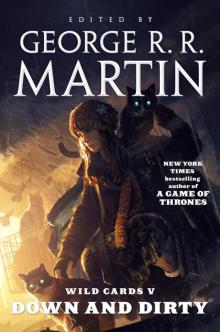 Wild Cards V
Wild Cards V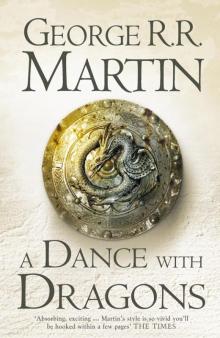 A Dance with Dragons asoiaf-5
A Dance with Dragons asoiaf-5 Dealer's Choice w-11
Dealer's Choice w-11 The Book of Magic
The Book of Magic A Game of Thrones 4-Book Bundle
A Game of Thrones 4-Book Bundle Texas Hold 'Em
Texas Hold 'Em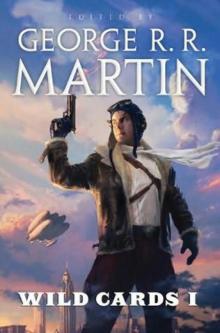 Wildcards wc-1
Wildcards wc-1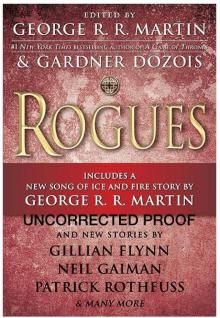 Rogues
Rogues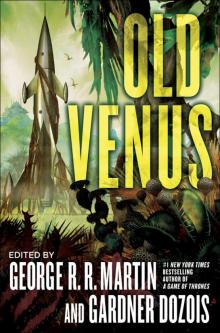 Old Venus
Old Venus